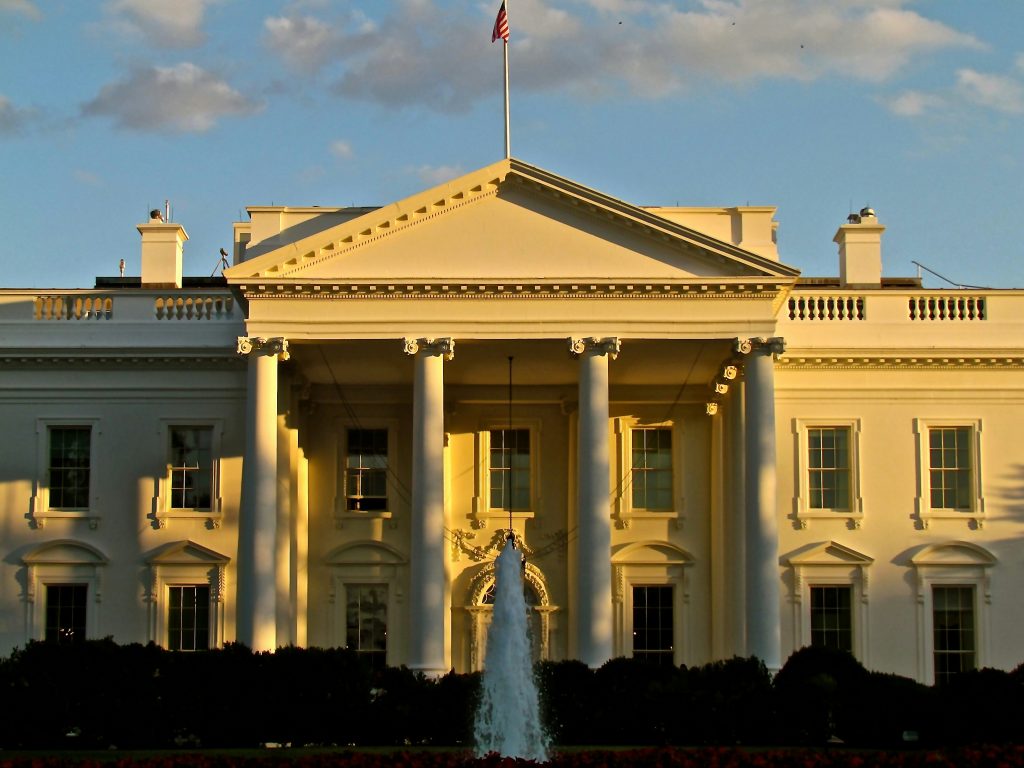Could Bostock v. Clayton County, Georgia Undermine Affirmative Action?
Could Bostock v. Clayton County, Georgia undermine affirmative action?
By: Aaron Clark*
In the wake of the Black Lives Matter movement, many corporations have experienced public pressure to increase diversity in managerial and leadership positions. However, one potential legal challenge to race-conscious hiring practices has arisen from an unlikely place.
In June of 2020, the Supreme Court handed down the landmark decision Bostock v. Clayton County, Georgia holding that it is unlawful to discriminate against homosexual or transgender individuals under Title VII of the Civil Rights Act[1]. Progressives and gay rights activists across the country celebrated this unexpected victory. However, upon closer examination of Gorsuch’s majority opinion, some commentators have speculated that it may undermine the legal foundation of affirmative action programs.[2]
In Bostock, the Court held that if an individual is fired for being gay or transgender, the individual has been fired “because of” sex in violation of Title VII.[3] Justice Gorsuch, writing for the majority, applied a but-for test in determining whether sex discrimination has occurred; but for the employee’s sex, would the employee have been terminated.[4] Gorsuch reasoned that if an employer fires a male employee for having a relationship with another male but would not fire a female employee in the same relationship, the employee has been unlawfully terminated because of his sex.[5]
In arriving at this conclusion, Gorsuch rejected the consideration of the historical context, legislative history, and the intended purpose behind Title VII in defining the term “because of . . . sex.”[6] Consistent with textualist jurisprudence, the opinion reads, “When the express terms of a statute give us one answer and extratextual considerations suggest another, it’s no contest. Only the written word is the law, and all persons are entitled to its benefit.”[7] The Gorsuch also rejected a disparate impact approach for evaluating discrimination and wrote, “our focus should be on individuals, not groups.”[8]
Although essential in reaching his conclusion, Gorsuch’s rejection of the historical context behind Title VII threatens the legal underpinnings of affirmative action programs. In 1979 the Supreme Court held that reasonable employer affirmative action programs do not violate Title VII’s prohibition on racial discrimination.[9] The Court relied heavily on the legislative history and statutory purpose behind the Civil Rights Act in concluding that the law was not intended to prevent all private, voluntary, race-conscious affirmative action programs.[10] Hence, Bostock’s refusal to consider the extratextual context in interpreting Title VII’s prohibition on sex discrimination, may provide a justification to reject similar extratextual considerations in interpreting Title VII’s prohibition of race discrimination and thereby narrow the legality of race-conscious affirmative action programs in future cases.
With the passing of Ruth Bader Ginsburg, the future of affirmative action may be influenced by who is appointed to fill her vacancy. If President Trump’s nomination is successful, the composition of the Supreme Court will have shifted significantly to the right since 2016 when the last affirmative action case was decided in Fisher v. University of Texas.[11] Interestingly, Fisher, upholding the use of a race-conscious college admission plan, was decided by a 4-3 split with the Kennedy writing the majority joined by Ginsburg, Breyer, and Sotomayor, while Roberts, Alito, and Thomas dissented and Kagan took no part in the consideration of the decision.[12] With Gorsuch filing the vacancy left by Scalia and Kennedy replaced by Kavanaugh, Ginsburg’s vacancy creates the possibility that the dissent’s position in Fisher may soon become the majority.
There are also several affirmative action cases on the horizon which may give the Supreme Court an opportunity to reassess the relationship between affirmative action and Title VII.
First, a group of Asian-American plaintiffs are suing Harvard University arguing that Harvard’s affirmative action program unfairly discriminates against Asian-American students.[13] This case is currently pending before the First Circuit Court of Appeals and the plaintiffs have indicated their willingness to appeal to the Supreme Court.[14]
In a similar vein, the Justice Department recently threatened to sue Yale University alleging that their affirmative action program illegally discriminates against Asian and White applicants in the admission process.[15] Yale has firmly denied that its race-conscious admission practices are impermissible, suggesting a likelihood of litigation.[16]
On the corporate front, the California legislator recently passed a law awaiting the Governor’s signature which would require a minimum number of female and minority board members on corporations headquartered in California.[17] While this law’s use of racial quotas is legally dubious,[18] it may provide the Courts an opportunity to further limit the legality of affirmative action programs.
As this area of law continues to develop, Gorsuch’s textualist opinion in Bostock represents a significant shift in the Court’s interpretative approach to Title VII. While the future of affirmative action jurisprudence remains uncertain, it will be significantly influenced by the Justice appointed to fill the vacancy left by the passing of Ruth Bader Ginsburg.
*J.D. Candidate, Class of 2022, Arizona State University Sandra Day O’Connor College of Law.
[1] Bostock v. Clayton County, Georgia, 140 S.Ct. 1731, 1754 (2020).
[2] See Cass Sunstein, Gorsuch Paves Way for Attack on Affirmative Action, Bloomberg Opinion (June 17, 2020), https://www.bloomberg.com/opinion/articles/2020-06-17/gorsuch-gay-rights-opinion-targets-affirmative-action
[3] Bostock, 140 S.Ct. at 1744.
[4] Id. at 1740-41. The opinion reads, “If the employer intentionally relies in part on an individual employee’s sex when deciding to discharge the employee—put differently, if changing the employee’s sex would have yielded a different choice by the employer—a statutory violation has occurred.”
[5] Id.
[6] Id. at 1749-50.
[7] Id. at 1739.
[8] Id. at 1740.
[9] Steel Workers of America v. Weber, 443 U.S. 193, 208 (1979) (holding that an affirmative action plan that reserved 50 percent of the openings in an in-plant craft training program for black employees until the percentage of black craft workers was commensurate with percentage of blacks in local labor force did not violate Title VII’s prohibition against racial discrimination because the purposes of the plan mirrored those of the statute, the plan did not unnecessarily trammel the interests of white employees, and the plan was a temporary measure, not intended to maintain racial balance, but simply to eliminate a manifest racial imbalance).
[10] Id. at 201-203.
[11] Fisher v. University of Texas, 136 S.Ct. 2198, 2207 (2016) (holding that a state university’s admission plan admitting three-fourths of the incoming freshmen class from the top 10% of high school students and remaining one fourth through a race-conscious admissions program withstood strict scrutiny under the equal protection clause).
[12] Id. at 2204.
[13] First Circuit Oral Arguments: Students for Fair Admissions v. President & Fellows of Harvard, First Circuit Court of Appeals (Sept. 16, 2020), http://media.ca1.uscourts.gov/
files/audio/19-2005.mp3.
[14] Nate Raymond, Appeals Court Weighs Harvard University Use of Race as a Factor in Admissions, Insurance Journal (Sept. 16, 2020), https://www.insurancejournal.com/news
/national/2020/09/16/582815.htm.`
[15] Press Release, Dep’t of Justice, Justice Department Finds Yale Illegally Discriminates Against Asians and Whites Undergraduate Admissions in Violation of Federal Civil Rights Laws (August 13, 2020), https://www.justice.gov/opa/pr/justice-department-finds-yale-illegally-discriminates-against-asians-and-whites-undergraduate.
[16] Jan Wolfe & Eric Beech, U.S. Justice Department says Yale Illegally Discriminates Against Asians, Whites, Thomson Reuters (Aug. 13, 2020, 1:33 PM), https://www.reuters.com/article
/us-usa-yale-discrimination-idUSKCN2592YT.
[17] Assembly Bill 979, 2019-2020 Leg. Sess. (Cal. 2020).
[18] Grutter v. Bollinger, 123 S.Ct. 2325, 2342 (2003) (holding that the equal protection clause forbids the use of racial quotas in a race conscious college admission plan).
Related Posts

District Court Judge Issues Injunction Requiring Work Continue at CFPB

The Trump Administration’s Proposed Carried Interest Tax Reform
